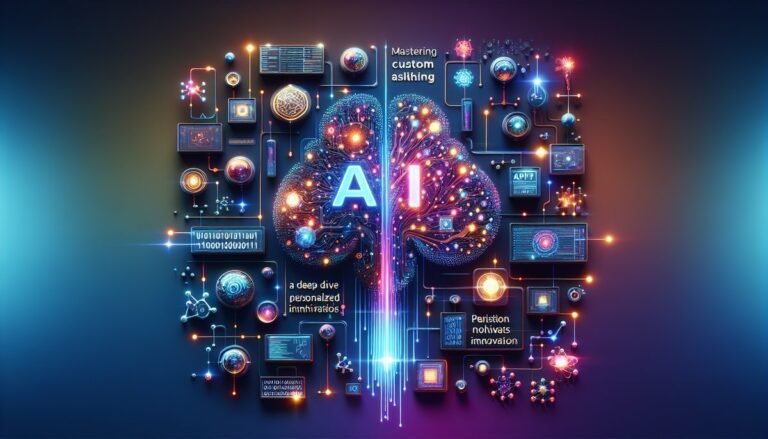In the ever-evolving landscape of technological advancement, AI and Big Data are revolutionizing how humanitarian logistics operate in countries like Ghana and South Africa. As these powerful tools intertwine with the complexities of delivering aid, they are transforming traditional approaches to managing resources and reaching those in need. This digital evolution is not just enhancing efficiency but also fostering innovation in service delivery, bringing hope and support to countless communities.
Harnessing Technology for Humanitarian Aid
The integration of AI and Big Data in humanitarian logistics marks a significant turning point. By leveraging these technologies, organizations can now predict demand with greater accuracy, optimize supply chain operations, and improve distribution networks. This means that essential goods, from food to medical supplies, can be delivered more promptly and reliably to regions in crisis. In Ghana and South Africa, where logistical challenges often hinder swift aid delivery, the impact of these advancements is particularly profound.
Data-Driven Decisions: A New Era of Efficiency
One of the most compelling benefits of employing AI and Big Data is the ability to make informed, data-driven decisions. Humanitarian agencies are now equipped with tools that analyze vast amounts of information, enabling them to anticipate needs and allocate resources more effectively. For instance, by examining patterns in past crises, predictive models can forecast future demands, allowing for preemptive action rather than reactive measures. This proactive approach is reshaping how aid is distributed, ensuring that help arrives before situations become dire.
Real-World Impact: Transforming Lives on the Ground
In regions like Ghana and South Africa, the introduction of AI and Big Data in logistics has tangible, life-changing effects. For example, during the recent drought in parts of South Africa, AI-driven models helped identify areas most in need of water supplies and irrigation support, significantly reducing the time needed to deliver aid. Similarly, in Ghana, data analytics have been used to streamline the distribution of educational materials, ensuring that schools in remote areas receive the resources they need promptly.
Challenges and Considerations
Despite the promising benefits, the deployment of AI and Big Data in humanitarian logistics is not without challenges. Issues such as data privacy, the digital divide, and the need for robust infrastructure can pose significant hurdles. Ensuring that data is collected and used ethically is paramount, as is providing training and resources to local teams to handle these sophisticated tools effectively. Addressing these challenges requires a collaborative effort between governments, NGOs, and tech companies to create sustainable and inclusive solutions.
The integration of AI and Big Data into humanitarian logistics in Ghana and South Africa is a beacon of progress in a field that desperately needs modernization. By enhancing the speed and accuracy with which aid is delivered, these technologies are not only saving lives but also paving the way for a more equitable future. As these nations continue to embrace digital solutions, the potential for significant positive change is limitless, offering a glimpse into a world where technology and humanity work hand in hand for the greater good.
Harnessing AI and Big Data for Enhanced Humanitarian Efforts
In recent years, the integration of AI and Big Data into humanitarian logistics has revolutionized the way aid is delivered in regions like Ghana and South Africa. These advanced technologies have transformed traditional methods, providing a robust framework for efficient and timely responses to crises. By analyzing vast amounts of data, these technologies allow for precise forecasting, strategic deployment, and optimal resource allocation, ensuring aid reaches those who need it most.
Predictive Analytics: A Game-Changer in Crisis Management
One of the most significant impacts of AI and Big Data is their ability to predict and manage emergencies before they escalate. For instance, in Ghana, predictive models are employed to assess potential flood zones. These models analyze historical weather patterns, current climatic conditions, and geographical data to forecast possible disasters. By providing early warnings, they enable humanitarian agencies to pre-position supplies and prepare communities, drastically reducing response times and saving lives.
Similarly, in South Africa, AI-driven systems have been instrumental in tackling droughts. By analyzing satellite imagery and meteorological data, these systems offer predictions on water scarcity, allowing for better water management strategies. This proactive approach not only aids in immediate relief efforts but also supports long-term sustainability initiatives.
Optimizing Supply Chains with Data-Driven Decisions
Logistics in humanitarian aid relies heavily on the ability to move goods quickly and efficiently. The integration of AI and Big Data has brought about a paradigm shift in supply chain management. In Ghana, for example, AI algorithms are used to optimize delivery routes, reduce transportation costs, and minimize delays. By processing real-time traffic data and supply chain variables, these algorithms ensure that resources are delivered to remote areas with unprecedented efficiency.
Furthermore, machine learning applications have enabled the tracking of inventory levels in real-time, ensuring that stock levels are maintained and replenished as necessary. This has been particularly beneficial in South Africa, where dynamic inventory management is crucial for dealing with fluctuating demands during health crises. The ability to accurately predict and adjust to needs ensures that critical supplies like medicine and food are distributed effectively, minimizing waste and maximizing impact.
Empowering Local Communities through Data Insights
AI and Big Data do more than just improve logistics; they empower local communities by providing them with the tools and information needed to make informed decisions. In Ghana, data-driven insights have been pivotal in educational initiatives, where local leaders are trained to interpret data relevant to their communities. This knowledge aids in better planning and self-sufficiency, reducing dependency on external aid over time.
In South Africa, community health workers utilize AI-powered mobile applications to track and manage patient information. These apps help in identifying high-risk individuals and ensuring they receive timely medical attention. By leveraging these technologies, local healthcare systems become more resilient and responsive, ultimately improving public health outcomes.
Challenges and Future Prospects
Despite the numerous benefits, the integration of AI and Big Data in humanitarian logistics is not without challenges. Issues such as data privacy, the digital divide, and technological literacy present significant hurdles. In many rural areas of Ghana and South Africa, infrastructure limitations and lack of access to digital tools can impede the effectiveness of these technologies.
However, the future looks promising. Initiatives aimed at expanding digital infrastructure and improving technological education are underway, addressing these challenges head-on. By fostering partnerships between governments, non-profits, and tech companies, there is potential for further advancements in the realm of humanitarian logistics.
Moreover, as Artificial Intelligence continues to evolve, we can expect even more sophisticated applications that enhance predictive capabilities and logistical efficiencies. With ongoing innovation, AI and Big Data stand poised to play an even more critical role in shaping the future of humanitarian aid, ensuring that support reaches every corner of Ghana and South Africa when it is most needed.
Charting the Path Forward: AI’s Role in Humanitarian Aid
The integration of Artificial Intelligence and big data into humanitarian logistics in Ghana and South Africa marks a pivotal shift in addressing pressing challenges. By leveraging these technologies, aid organizations can optimize supply chain efficiencies, ensuring that necessities reach those in need with greater speed and accuracy. This transformation is not just about improving current systems but also about reimagining what is possible in humanitarian efforts. As AI continues to evolve, its potential to predict crises, streamline resource allocation, and enhance communication will become indispensable in crafting more resilient communities.
Looking forward, the key to unlocking AI’s full potential in this sector lies in robust collaboration between tech innovators, policymakers, and on-the-ground organizations. This synergy will drive the creation of tailored solutions that address local needs while maintaining a global perspective. Embracing unconventional applications of technology will be crucial as we continue to seek innovative ways to overcome logistical hurdles and enhance the quality of life for those in vulnerable situations.
What are the main benefits of using AI in humanitarian logistics?
AI enhances efficiency by optimizing routes, predicting demand, and improving resource allocation. This leads to faster and more reliable aid delivery, especially in remote or hard-to-reach areas.
How does big data improve humanitarian operations in Ghana and South Africa?
Big data provides valuable insights into trends and patterns, allowing organizations to make informed decisions. It helps in anticipating needs and responding to crises more effectively.
Are there any challenges in implementing AI and big data in these regions?
Yes, challenges include limited infrastructure, data privacy concerns, and the need for localized solutions to address specific regional issues.
How can local communities benefit from AI-driven humanitarian efforts?
Local communities benefit through enhanced access to resources, improved response times during emergencies, and the creation of sustainable support systems tailored to their specific needs.
Explore the Boundaries of AI & Tech
- Ai Product Management Tools 2025
- Janitor Vs Character Ai Comparison 2025
- Chatgpt Burnout Coach Insights
- Ai 171 Uk Convocations
- 4K Vs 2K Dash Cam Comparison
- Best Tablet Holder For Car
- Stalker2 Ai Update 2
- How To Use Janitor Ai Roleplay Guide
- Anthropic Ai Books
- Government Ai Job Losses






